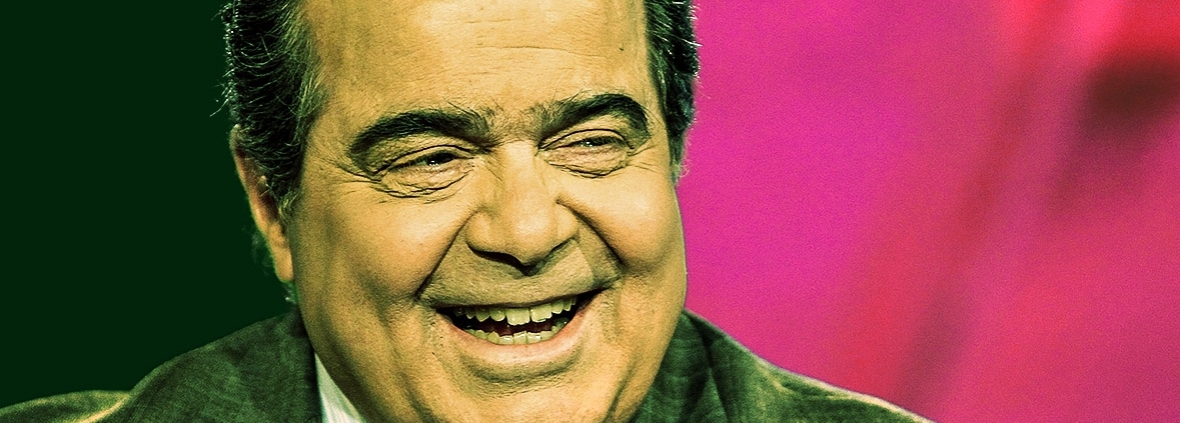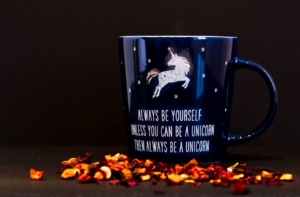Scalia, Unicorns, and Magic Flying Puppies
Here’s What You Need to Know
Before any discussion of the politics of the Supreme Court, take a moment to read Justice Ginsberg’s warm recollection of her “best buddy” and ideological foil, Justice Scalia and remember the impressive career of a truly historic jurist.
Alas, outside the Court’s amicable chambers, Justice Scalia’s passing has launched an intense political scramble among Republicans and Democrats over the future of the Court. Delve CEO Jeff Berkowitz has written a Medium post breaking down the state of affairs in the fight and what may be the best resolution on the matter for the country.
Here’s a key excerpt:
Subscribe to Receive Insights
"*" indicates required fields
If (when) Obama puts forth a nominee, there is a relatively short list of potential candidates already being circulated. The list includes current Attorney General Loretta Lynch, District of Columbia Circuit Court Judges Merrick Garland, Sri Srinivasan (once described as Obama’s “Supreme Court nominee-in-waiting”), Patricia Ann Millet, Ninth Circuit Court of Appeals Judge Jacqueline Nguyen, California Attorney General Kamala D. Harris and U.S. Senator Corey Booker.
None of [the President’s possible nominees] are likely to pass muster with Republicans, which begs the question, why are Republicans so obstinate? Is it just pure partisan obstructionism, or is there something more? Given the past six years of the Obama administration, they have come to expect the White House to prioritize a nominee who embodies virtue signaling rather than the serious jurisprudence needed for the position of Associate Justice of the U.S. Supreme Court. In other words, his pick will be based on mobilizing liberals during an election year while tagging Republicans as backwards-thinking opponents to a barrier-breaking nominee, not on finding the next great American jurist worthy of replacing Justice Scalia.
Considering the White House will likely end up choosing this course of action, coupled with the intensely divided state of American politics, Mitch McConnell may just be right. Even if his motives are political, a call for allowing the 2016 election to provide a new President (and a new Senate) the opportunity to appoint the next Supreme Court Justice seems like the best thing for a bitterly divided country.
News You Can Use
THE GREAT TECH RESET
If last year VC investors were hunting for ‘unicorns,’ this year, Business Insider reports, they are hunting for ‘cockroaches’ – “companies building sustainable businesses that can survive anything.” The great reset in tech comes as, for the first time since 2011, there was no IPO in January and publicly traded firms like LinkedIn, Twitter and others have taken major hits to their value. “Struggling unicorns” like DropBox, Cloudera, and Jawbone “might find their only option is going public.”
PLAYING THE ECONOMIC BLAME GAME
As China released its latest round of trade data, some global investors are suggesting the Asian nation’s troubles are threatening the world economy. Other sourcessuggest, “The rise of outsider presidential candidates Donald Trump and Bernie Sanders… could be one more reason why stock markets are under pressure and could remain so for awhile.” Whether due to the rise of outsider presidential candidates or China’s unstable economy it remains clear 2016 is shaping up to be a shaky year for U.S. and global markets.
MATH IS HARD
Economists have something to say about Sanders’ policy proposals. First, his agenda would increase the size of the federal government by an estimated 50 percent, surpassing “any government expansion since the buildup in World War II.” According to left-center economists, “The proposals would add $2 trillion to $3 trillion a year on average to federal spending.” Moreover, as the former chairman of President Obama’s Council of Economic Advisers said, “the numbers don’t remotely add up.” We’re looking at “magic flying puppies with winning Lotto tickets tied to their collars.”
ADELE V. TRUMP
As Tevi Troy writes in Politico: “Typically…a GOP candidate attempting to use a popular song risks receiving a snub from the artist, who not only rejects the candidate but then takes shots at his political stands.” But Donald Trump is different; he just doesn’t care. After Adele told Trump he didn’t have her permission to use her songs at his campaign events, he responded by playing “Skyfall” as his helicopter landed at an event in Arkansas and blasted “Rolling in the Deep” as he made an entrance at a later event in New Hampshire. “Shameless and defiant,” Trump is making musical intros great again!
HE WAS FOR IT BEFORE HE WAS AGAINST IT
Even seasoned politicians have fallen victim to shifting their position on issues when they become controversial. Such appears to be the case with Donald Trump and the Iraq war. As Buzzfeed reports, he claimed in a September debate that “he could provide 25 stories showing his early opposition to the Iraq War.” When no stories could be found, he responded by saying, “I wasn’t a politician so people didn’t write everything I said.” But a new search has discovered that Trump did write about the Iraq war. In his 2000 book, The America We Deserve, he called for taking out Iraq’s WMDs – even before Bush was president.
OBAMA BACKS ‘BREMAIN’
President Obama plans to make “a big, public reach-out” to urge voters in Britain to remain within the EU, which the Guardian reports “is likely to focus on the need for the EU to stick together to combat the migration crisis and the growing threat of Russian aggression in the Baltics, Ukraine and Middle East.” However, many in Washington and London fear this message might backfire. Indeed, a new UK citizen petition calls for Obama to be banned from speaking in Parliament in response to his intended “Brexit” intervention. As Conservative MP John Redwood said, “Most British people will feel this is a debate for us and it’s unusual for a foreign country to wish to intervene.”
THE TRUE POLITICAL DIVIDE: VOTERS VS. POLITICIANS
As The Washington Post reports, “According to experts who study polarization, Americans don’t necessarily disagree more on policy. What has changed is the level of mistrust, and even vitriol, Americans have for politicians and their fellow citizens on the other side of the political divide.” This deep mistrust effects the way Americans see and hear themselves and each other. A 2015 study revealed that “Democrats and Republican respondents were far off base in their assumptions about the other party’s demographic makeup and, in some cases, those of their own party as well.” The extent to which one will rally behind the statement, “Democracy breaks down when the average person feels their voice doesn’t matter,” depends on the party of the person who said it. In this case, it was President Obama. How does that make you feel?
Mark Your Calendars
February 20 – Nevada Democratic Caucus & South Carolina Republican Primary
February 23 – Nevada Republican Caucus
February 25 – CNN GOP Debate
February 27 – South Carolina Democratic Primary
Subscribe here to get TL;DR in you inbox each week.



